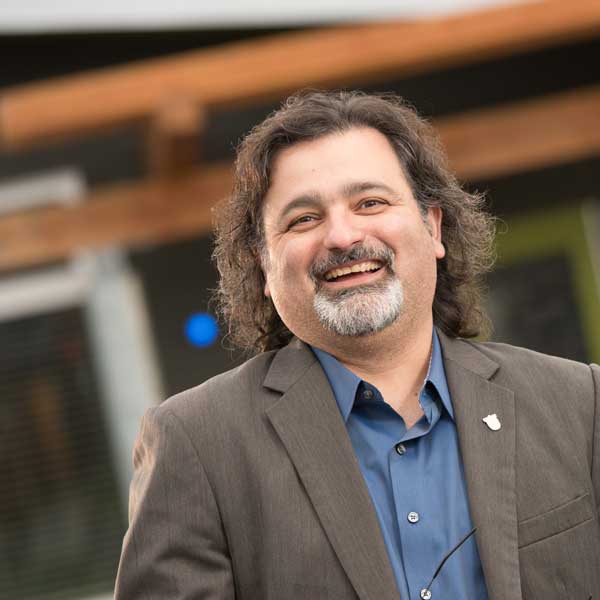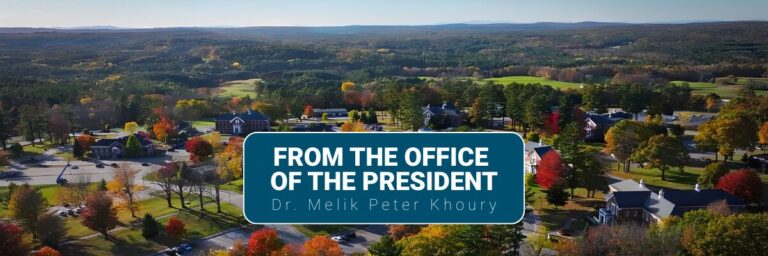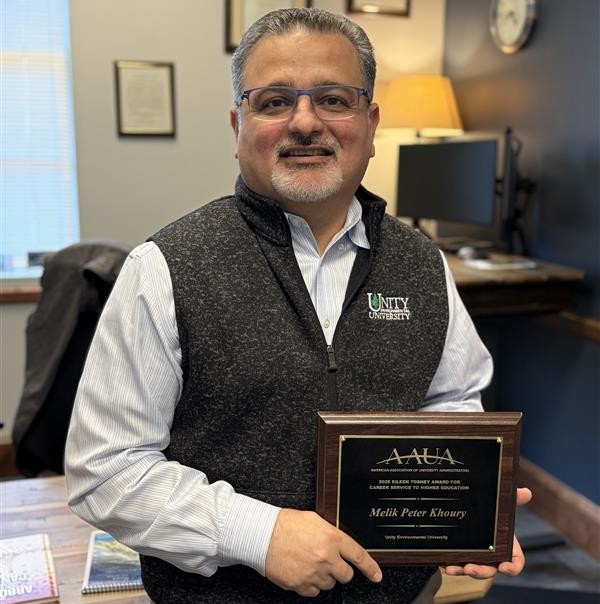
Unity College President Dr. Melik Peter Khoury joined presidents and chancellors from 170 colleges and universities nationwide to urge President-elect Trump and incoming congressional representatives to accelerate progress toward a clean energy future.
Through their open letter, organized by a diverse group of higher education institutions and the Boston-based nonprofit Second Nature, they call on elected officials to support participation in the Paris Agreement, climate research, and investment in a low-carbon economy. The schools also expressed alignment with business and investment communities in supporting the science-based targets outlined in the Paris Climate Agreement.
“The upcoming transition of federal leadership presents a unique opportunity to address head-on the challenges of climate change by accelerating the new energy economy and creating strong, resilient communities,” the group wrote. “We are committed to developing and deploying innovative climate solutions that provide a prosperous future for all Americans.”
This letter was collaboratively developed by a diverse group of higher education institutions and released Monday. On Jan. 13, 2017, the letter will be delivered to the new congressional delegation and incoming presidential transition team.
Unity College, known as America’s Environmental College, has been taking climate action for years, including voluntarily setting carbon neutrality goals and publicly reporting progress through a program called the Climate Leadership Commitments, and being the first U.S. college to divest its portfolio of the Top 200 fossil fuel producers. The latter sparked a global movement that now totals more than $5.2 trillion in assets divested of dirty energy.
“As a national leader in sustainability science education and the first college to divest from fossil fuels, President Khoury felt that we had to recommit ourselves to this call for climate change solutions,” said Jennifer deHart, Chief Sustainability Officer. “I’m proud to work for a values-based institution that grounds its decisions in science.”
In addition to being known internationally for being the first U.S. college to divest from fossil fuels, Unity also was the first college with a residence hall built to Passive House standards, known as TerraHaus; and the first with a president’s home, known as Unity House, to be certified LEED Platinum by the U.S. Green Building Council.
Khoury said signing the letter “offers the full weight of an American institution that has established itself as a leader in climate sustainability.”
“We will continue to press for action,” Khoury said. “But, more importantly, we will — today and every day — continue to create and model the operational and educational examples of sustainability for our community while convening important discussions about the flourishing of humankind.”
A full list of the schools supporting the open letter can be found here.
About Unity College
The first institution of higher education in the nation to divest from fossil fuel investments, Unity College is committed to educating the next generation of environmental professionals. Sustainability science lies at the heart of its educational mission, with 16 environmentally focused undergraduate majors and an M.S. in Professional Science degree offered online. For more information, visit unity.edu.
About Second Nature
Second Nature works to proactively build a sustainable and positive global future through initiating bold commitments, scaling successful actions, and accelerating innovative solutions among leadership networks in higher education. The Climate Leadership Commitments are a signature program of Second Nature and include a Carbon Commitment (focused on reducing greenhouse gas emissions), a Resilience Commitment (focused on climate adaptation and building community capacity), and a Climate Commitment that integrates both. The Climate Leadership Network comprises more than 600 colleges and universities in every state and the District of Columbia who have committed to take action on climate and prepare students through research and education to solve the challenges of the 21st century.



